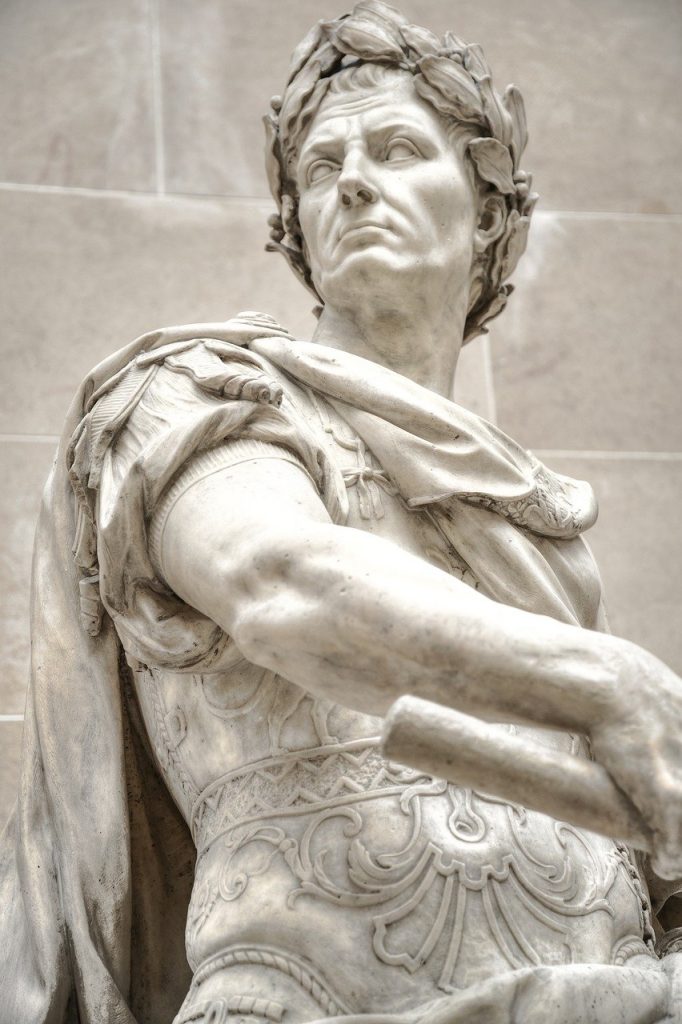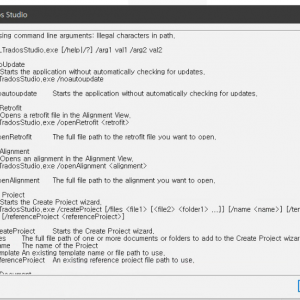본 마지막 장에서 무신론자인 Catullus에서 기독교 성인인 성 요한의 부활절 이야기를 살펴보겠습니다.
20a Catullus 및 Lesbia
노트해 두십시오. null-us a um no; tant- . . . quant- so much . . . as; se amatam herself [to have been] loved; vere truly; fides good faith (주격 f); ullo (ullus, no 또는 any) . . . foedere (foedus 3n의 탈격) in any treaty; umquam ever; in amore tuo in love for you; pars part– part, side 3f; reperio 4v repper-i repert-um find.
nulla potest mulier tantum se dicere amatam
….vere quantum a me Lesbia amata mea est.
nulla fides ullo fuit umquam foedere tanta
….quanta in amore tuo ex parte reperta mea est.
미묘한 시에서 항상 문제가 되는 것은 단어 순서입니다. 어순을 다음과 같이 바꾸어 해석해 보십시오.
nulla mulier potest dicere se vere amatam tantum, quantum mea Lesbia a me amata est;
nulla fides umquam fuit tanta ullo foedere, quanta reperta est in amore tuo ex mea parte.
해답
No woman can say she has been truly loved so much as my Lesbia has been loved by me.
No good faith was ever found so much in any treaty, as was found in love for you on my part.
두 귀절 모두 nulla로 시작하고 mea est로 끝납니다. 두 번째 구에서 Catullus는 Lesbia에 대해 느낀 ‘진정한 사랑’의 특별한 본성을 정의하려고 시도합니다. 성공했을까요 아니면 좌절했을까요? 자신 또는 그녀 중 어느 쪽에서 본 관점일까요? 특히 마지막 귀절을 주목해 보십시오.
20b 성 제롬(St Jerome) editio vulgata (‘the Vulgate’)의 요한 복음 19장과 20장에서 발췌.
그리스어는 기원전 3세기부터 동부 지중해의 보편적 언어였습니다. 구약 성서는 기원전 3세기에 히브리어에서 그리스어로 번역되었고 (칠십인역 the Septuagint) 다시 라틴어로 번역되었습니다(‘Old Latin’-vetus Latina). 예수와 제자들은 히브리어(?아람어)를 사용했지만 복음은 간단한 그리스어로 쓰였습니다.
성 제롬의 라틴 editio vulgata (‘the Vulgate’, ‘popular edition’)는 당시의 그리스어, 라틴어 및 히브리어 버전(성 제롬도 히브리어 학자였음)에 기반하고 있습니다.
서기 4세기에 저술된 이 책은 샤를 마뉴에 의해 서기 8세기에 성경의 공식 텍스트로 채택되었습니다. 그 내용은 하나님의 말씀으로 여겨졌으며 신학자들에 의해 그 역사적, 도덕적, 우화적, 영적 의미가 세밀하게 연구되었습니다.
이제 성 요한의 부활절 이야기 중 빌라도가 예수를 매질하는 부분을 읽어 보겠습니다.
19장 1-3절. 어휘 flagello 1v scourge; plecto 3v plait; spin-a thorn; vest-is 3f robe; purpre-us a um purple; circum-do dare dedi clothe X (대격) with Y (탈격); alap-a 1f blow
본문. tunc ergo apprehendit Pilatus Iesum, et flagellavit. et milites plectentes coronam de spinis, imposuerunt capiti eius: et veste purpurea circumdederunt eum. et veniebant ad eum, et dicebant ‘ave, rex Iudaeorum’: et dabant ei alapas.
해답
Therefore, Pilate then took Jesus into custody and scourged him. And the soldiers, plaiting a crown of thorns, imposed it on his head. And they put a purple garment around him. And they were approaching him and saying, “Hail, king of the Jews!” And they struck him repeatedly.
참고. The expression ‘dabant alapas’ has the verb in the imperfect tense, so the translation of ‘repeatedly’ is justified. More literally (and more awkwardly) it says, ‘they were giving him blows’.
7-12절. 어휘 secundum + 대격 according to; mori (deponent verb morior) to die; audisset = audivisset (접속법 18d 참조): hunc (hic의 대격) this (sermonem과 연결); magis the more; ingressus est (deponent verb, ingredior) he entered; praetorium judgement hall; iterum again; loqueris (deponent verb, loguor) do you speak; non haberes you would not have; adversus + 대격 against; ullam any (potestatem과 연결); datum esset it had been given; desuper from above; qui he who; maius* greater (peccatum과 연결); peccat-um sin; exinde from then on; hunc him, this (대격); omnis qui everyone who; contradico contradict (+ 여격)
*각 격에 따른 곡용 변화(제3형 형용사 곡용)
단수
주격 maior (m., f.) maius (n.)
대격 maiorem maius
속격 maioris
여격 maiori
탈격 maiore
복수
주격 maiores maiora
대격 maiores maiora
속격 maiorum
여격 maioribus
탈격 maioribus

본문
Responderunt ei Iudaei ‘nos legem habemus, et secundum legem debet mori, quia Filium Dei se fecit.’ cum ergo audisset Pilatus hunc sermonem, magis timuit.
et ingressus est praetorium iterum, et dixit ad Iesum ‘unde es tu?’ Iesus autem responsum non dedit ei. dicit ergo ei Pilatus ‘mihi non loqueris? nescis quia (that) potestatem habeo crucifigere te, et potestatem habeo dimittere te?’ respondit Iesus ‘non haberes potestatem adversum me ullam, nisi tibi datum esset desuper. propterea qui me tradidit tibi, maius peccatum habet.’
et exinde quaerebat Pilatus dimittere eum. Iudaei autem clamabant dicentes ‘si hunc dimittis, non es amicus Caesaris (3m). omnis enim qui se regem facit, contradicit Caesari.’
해답
The Jews answered him, ‘We have a law, and according to the law, he ought to die, for he has made himself the Son of God’. Therefore, when Pilate had heard this word, he was more fearful.
And he entered into the praetorium again. And he said to Jesus. ‘Where are you from?’ But Jesus gave him no response. Therefore, Pilate said to him: ‘Will you not speak to me? Do you not know that I have authority to crucify you, and I have authority to release you?’ Jesus responded, ‘You would not have any authority over me, unless it were given to you from above. For this reason, he who has handed me over to you has the greater sin.’
And from then on, Pilate was seeking to release him. But the Jews were crying out, saying: If you release this man, you are no friend of Caesar. For anyone who makes himself a king contradicts Caesar’.
14-16절. 어휘. Illi they; crucifigam shall I crucify; illum him;
본문. et dicit Iudaeis ‘ecce rex vester’. illi autem clamabant ‘tolle, tolle, crucifige eum.’ dicit eis Pilatus ‘regem vestrum crucifigam?’ responderunt pontifices ‘non habemus regem, nisi Caesarem.’ tunc ergo tradidit eis illum ut crucifigeretur.
해답
And he said to the Jews, “Behold your king’. But they were crying out: ‘Take him away! Take him away! Crucify him!’ Pilate said to them, ‘Shall I crucify your king?’ The high priests responded, ‘We have no king except Caesar.’
Therefore, he then handed him over to them to be crucified.
19-22절. 어휘 titul-us title; super (+ 대격) above, ipse he himself; quod what
본문
Scripsit autem et titulum Pilatus, et posuit super crucem. erat autem scriptum ‘Iesus Nazarenus, rex Iudaeorum’… dicebant ergo Pilato pontifices Iudaeorum ‘noli scribere, “rex Iudaeorum”, sed quia ipse dixit “rex sum Iudaeorum”’. respondit Pilatus ‘quod scripsi, scripsi’.
해답
Then Pilate also wrote a title, and he set it above the cross. And it was written’JESUS THE NAZARENE, KING OF THE JEWS’. Then the high priests of the Jews said to Pilate: Do not write, ‘King of the Jews,’ but that he said, ‘I am King of the Jews.’ Pilate responded, ‘What I have written, I have written’.
25-27절. 어휘 iuxta + 대격 next to; Iesu of Jesus; quem whom; suae his (matri와 연결); deinde then;
본문
stabant autem iuxta crucem Iesu mater eius, et soror matris eius, Maria Cleophae, et Maria Magdalene. cum vidisset ergo Iesus matrem, et discipulum stantem, quem diligebat, dicit matri suae ‘mulier, ecce filius tuus’. deinde dicit discipulo: Ecce mater tua.
해답
And standing beside the cross of Jesus were his mother, and his mother’s sister, and Mary of Cleophas, and Mary Magdalene. Therefore, when Jesus had seen his mother and the disciple whom he loved standing near, he said to his mother, ‘Woman, behold your son’. Next, he said to the disciple, ‘Behold your mother’.
30절. 어휘 consummo I finish, complete; inclinato capite (with) head inclined (inclino ‘incline’, ‘bend’)
본문
cum ergo accepisset Iesus acetum, dixit ‘consummatum est’. et inclinato capite, tradidit spiritum.
해답
Then Jesus, when he had received the sour wine, said, ‘It is consummated’. And bowing down his head, he surrendered his spirit.
20장 11-13절 어휘 fleo 2v weep; inclinat se she stoops down; prospicio 5v prospexi peer, look; duos two; alba white (clothes); unum (대격) one; pes ped-foot; illi they; quid why?; fero ferre tul-iI remove, take away
본문
Maria autem stabat ad monumentum foris, plorans. dum ergo fleret, inclinavit se, et prospexit in monumentum: et vidit duos angelos in albis, sedentes, unum ad caput, et unum ad pedes, ubi positum fuerat corpus Iesu. dicunt ei illi ‘Mulier, quid ploras?’ dicit eis ‘quia tulerunt Dominum meum, et nescio ubi posuerunt eum’.
해답
But Mary was standing outside the tomb, weeping. Then, while she was weeping, she bowed down and gazed into the tomb. And she saw two Angels in white, sitting where the body of Jesus had been placed, one at the head, and one at the feet. They say to her, ‘Woman, why are you weeping?’ She says to them, ‘Because they have taken away my Lord, and I do not know where they have placed him’.
17-18절. 어휘 tango touch; nondum not yet; enim for (문장 서두에 시작); ascend 3v ascend-I ascend; vado 3v go; frater fratr-brother; annuntio 1v announce; haec this (대격)
본문
dicit ei Iesus ‘noli me tangere, nondum enim ascendi ad Patrem meum. vade autem ad fratres meos, et dic eis ‘ascendo ad Patrem meum, et Patrem vestrum, Deum meum, et Deum vestrum’. venit Maria Magdalene annuntians discipulis quia ‘vidi Dominum, et haec mihi dixit’.
해답
Jesus say to her, ‘Do not touch me. For I have not yet ascended to my Father. But go to my brothers and tell them, ‘I am ascending to my Father and to your Father, to my God and to your God’. Mary Magdalene goes, announcing to the disciples, ‘I have seen the Lord, and these are the things that he said to me’.
드디어 마지막 제20장까지 완주하셨습니다. 수고 많았습니다.









